NBC recently cancelled The Brave which means, much like Haven, I was one of the few people watching it. Which is sad because it was really good.
It’s not on Netflix or Amazon Prime (yet – hopefully soon…. or eventually). It’s only 13 episodes so they’re easy to catch up on. And, it’s not entirely what you think. I mean, it is another military drama (there were 3 new ones in the 2017 fall season). But it’s not all guns and car chases. It’s engaging characters and good music that you just want to keep watching. Which brings us to our first lesson…
Good characters will carry any plot
This is probably not 100% true. Because we’ve all read stories with characters we love where we roll our eyes at some ridiculous plot twist or an absurd extension of a series. But with a good plot done well, then I think it’s true.
And to be perfectly frank, I’m not entirely sure how The Brave did it. As a military show, they don’t spend a lot of time talking about their personal lives or their feelings. Which is sort of where you expect character development to come from. These guys (gender inclusive) are laser focused on their missions and the dialog is more logistics than emotions. And yet, you really get to know each character. And you like them, even unexpectedly. Dalton is easy. He’s the no nonsense, handsome leader. But Amir, he’s quiet and smart and really tough with this dry sense of humor. I had no idea from the first episode that I’d end up liking him so much.
And now that I’m having to type it out (and rewatching episodes) I think it may be because each character has such a specific point of view in every scene. Their attitude and reactions to everything that is going on in the missions and to each other does the job of crafting these characters rather incredibly.
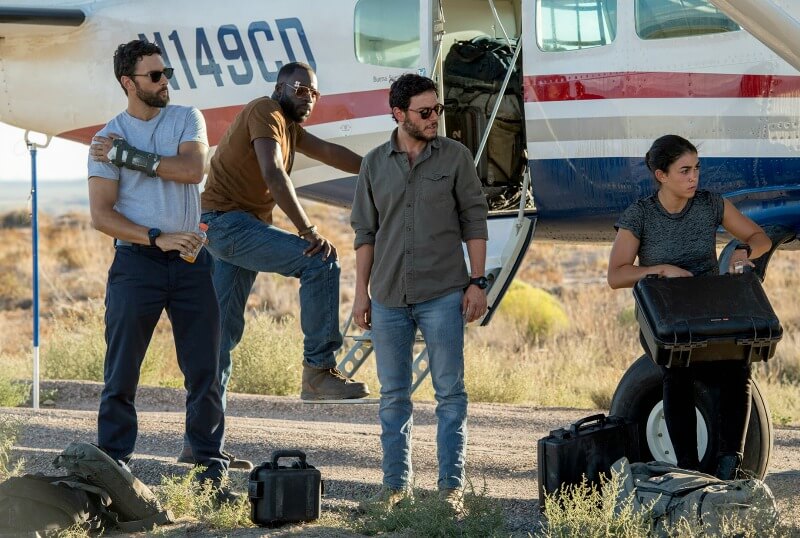
That is a combination of really good writing and really good acting. Oh, and really good music here and there that infuses an emotional climax.
And it’s not something you see in the other new military shows this season. Ok, I didn’t watch Valor but I did watch the first 16 minutes of SEAL Team. Maybe 16 minutes isn’t long enough to make a fair decision but I didn’t care about (or even like) any of the characters and I was bored.
I kept watching The Brave and by the time I finished the pilot, I kind of wanted to go back and watch it all over again.
How you go about imbuing your characters with a strong, specific point of view… well if I figure that out I’ll come back and add that.
Bonus lesson: Diversity can be seamless
One of the great things about The Brave is that you don’t notice how diverse the cast really is. It’s seamless because they don’t make a point of anyone being diverse. These are just people, with skills, there to work together. And while it’s not completely even, for a military drama there is a pretty decent number women. And they’re interesting and relevant to the story in their own right (not as a result of their relationship with one of the guys). And while the Ops team skews male, the guest stars and Intelligence team off set them pretty well.
It’s easier to be seamless in movies and tv, where we can see a person’s complexion or hear an accent. And even though writers have to say everything, I think it’s worth the effort to find ways to weave some of the cultural, racial and gender details in. I think it’s one way of highlighting what Madeleine L’Engle expressed as “Like and equal are not the same thing at all.”
Be careful with cliffhangers
I’m not going into spoilers in case you haven’t watched the whole season. I’m just going to say this one is so obvious I shouldn’t have to say it. And yet, it happens and I do feel compelled to say it.
If you’re a show on the bubble don’t end the season with even a little cliffhanger. Talk to the studio. Film an alternate ending. And if all else fails, play it safe and give the audience a satisfying ending.
I know it can be a strategy to give people a reason to be especially vocal about wanting the show back. And you sort of want the end of the season that you want. But if it’s a good show and people want more then they’re going to want more even without a cliffhanger.
If you’re a writer, you know how many books are in your publishing contract. If you don’t know whether your publisher is going to continue your series, don’t throw in a cliffhanger. If you’re not sure and you really want a cliffhanger, commit (to yourself at least) to writing the next book and self-publish it. Because, seriously, it sucks not to have a good ending.
Sometimes simple works
I know in this post-modern world audiences tend to like heroes with a little darkness, some faults and doubt they struggle with. And not just heroes, there’s a tendency to humanize the villain, understand their history and motivation. But sometimes simple storytelling with a clear cut good guy and bad guy is still entertaining.
The characters, especially Dalton, are post-modern, don’t get me wrong – all clean cut with a touch of darkness. But each episode presents the good guys and the bad guys, the mission, the obstacles and the ending. There isn’t a lot of complications or moral ambiguity. It also manages to be simple without being predictable, which perhaps is the greater feat. The characters have plenty of choices and conflict – adapting and reacting when everything goes wrong. Not over complicating the plot, however, allows the audience to understand and easily follow the characters as they make those choices.
This isn’t an exclusionary lesson. I like complicated stories; the kind that make you think, that thrive on sub-text, don’t feel the need to explain everything and end up somewhere you completely didn’t expect. It’s great but it’s not necessary. This lesson is and not or.
Maybe that simple storytelling is why audiences didn’t find The Brave and the ratings weren’t good enough. Maybe you need those clean definitions of good and bad when it’s a military show because people are getting shot. Which leads to our next lesson…
Likable characters can get away with murder (in the right circumstances)
This is probably a genre specific lesson. Maybe not. Though, if you’re writing fantasy or romance than probably you don’t have to worry about what happens if your main character needs to assault someone. If you’re writing crime dramas, murder mysteries, the sort of thing with unsavory elements then yeah – it’s important to make sure the audience likes your characters.
Not just likes them enough to follow them through the story. I say that all the time. This time we’re talking about the audience liking them enough for your plot to unfold. When they need to shoot someone. Lie. Hit someone. Maybe a few times. Betray someone they love.
The Brave is a military drama so they’re soldiers. And they kill the bad guys. Without hesitation and without remorse. It’s not the sort of show I normally enjoy so the aspects other people might appreciate (like the action or the mission logistics) aren’t going to work on me. The characters, those work for me. Then you double down and you have that scene at the kitchen table… man I better really like the character by the time we get there. Because good guy or bad guy that’s not a battlefield and it’s not a quick, do-what-needs-to-be-done-to-save-someone sort of scene.
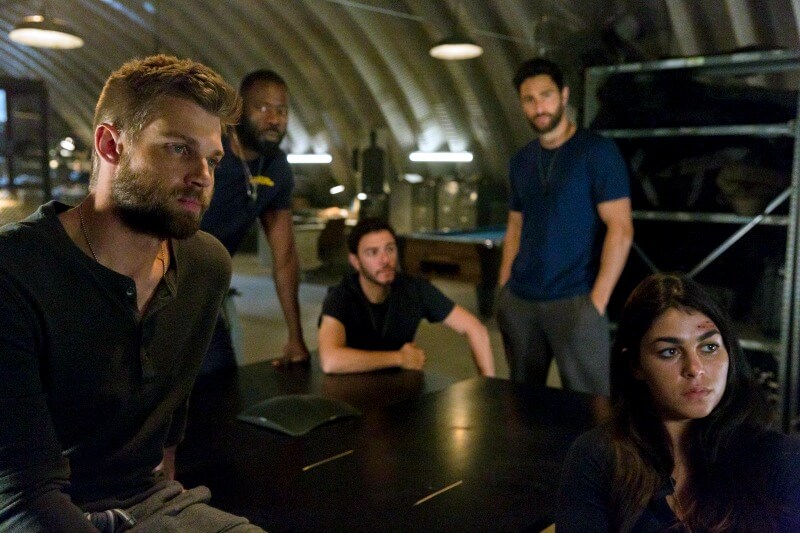
I talk a lot in this series about characters and choices. Taking responsibility for those choices – using choices in our writing to make interesting stories. The balance of bad choices and likable characters isn’t just about the thing the character actually does.
As an audience, we accept “bad” things as “good” choices all the time – lying, stealing, even hurting people – when we agree with why the character is doing what they’re doing. It’s when we don’t entirely agree with a choice that the likability of the character tips the balance of whether we keep reading (or watching) or not. That kitchen table scene – if I don’t already like the character (because of who they’ve proven themselves to be in other circumstances), if I don’t understand who they are and why they make that sort of a choice, then you’ve lost me and I’m not watching season 2 even if it had been renewed.
If your action novel of sci-fi story is going to push your character into choices where your audience might not follow along, then put the work in beforehand to get your audience to like them. Otherwise, you might push them into villain territory or lose your audience altogether.
Know your archetypes
There’s a number of different archetypes for male characters. There’s Mr. Handsome-Rich-Charming. There’s, of course Mr. Bad-Boy-with-a-Heart-of-Gold. The-Best-Friend has like a thousand variations but whether he’s a jock or a bit geeky she can never see his true value – not until the end, at least.
My recent favorite is Mr. Tenderhearted-Badass. You know, the guy that’s totally a fighter (often military of some sort) who walks into dangerous situations without flinching, does what needs to be done without remorse but then is all sensitive with the girls he likes. And not just romantically likes. In Shooter, it’s his wife and daughter. In Nikita it’s both Alex and Nikita (and also both Michael and Owen) with all the crosses and romances and friendships.
In The Brave it’s like all the guys and all the girls. Because the Special Ops guys are all total badasses. But Preach talking about his daughters is so sweet. And Amir with this girl who needs his help – well he’s a little brusque with her but he’s also taking care of her and her brother. And he’s a good cook. McG… ok he’s not this archetype. He’s Mr. I’ll-Do-Anything-for-a-Pretty-Girl. Dalton is interesting because you only get glimpses of his sensitive side. He doesn’t have a girl that he loves or a daughter or a friend – a character in the story that clearly reveals this other side of him. But you know it’s there. Because there are these moments where he isn’t the badass leader of an elite military unit. He’s just a little vulnerable. Just a little sensitive. And it makes you wonder what they would have done with him in season 2.
So what’s the writing lesson? I really don’t know. But the Brave was pretty much my favorite show of the season with one of my favorite archetypes played by a good actor (Mike Vogel) and now it’s gone. I just wanted to say my piece.
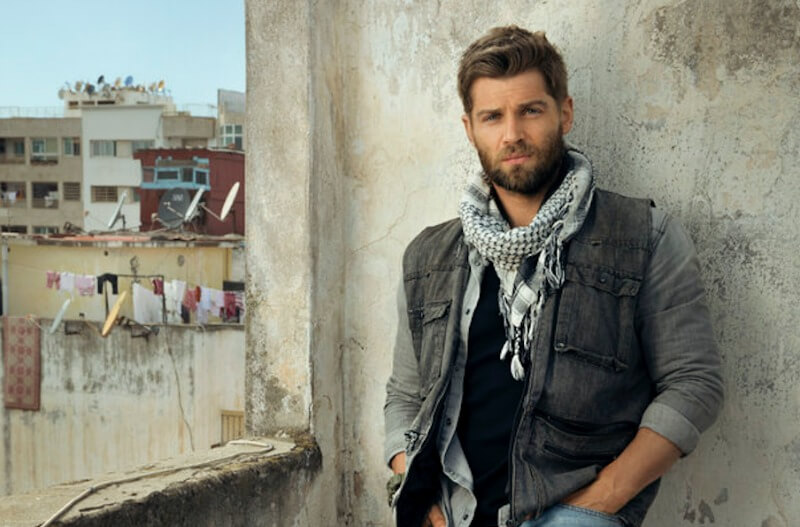
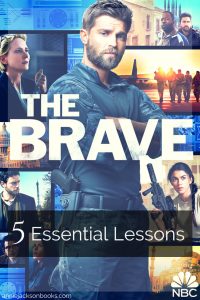
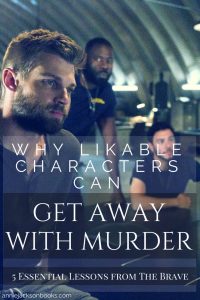
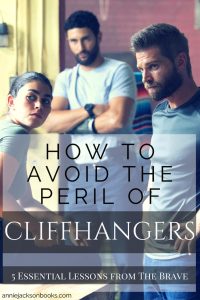
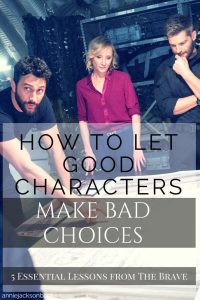
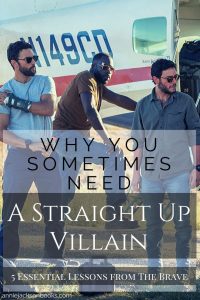
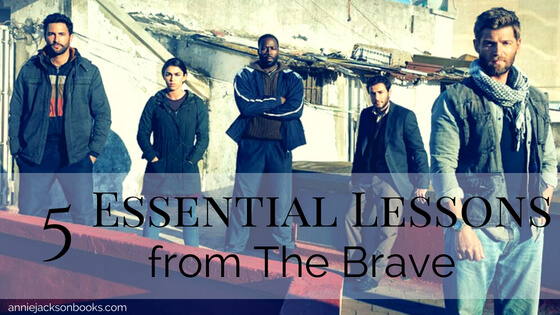
You weren’t the only one. I was waiting for it to come back like some military wife waiting for her husband to come back on leave. Thanks for confirming it was cancelled. You should analyze SEAL Team further so you can explain to me why EVERYONE in it is pissing me off. SEAL Team was my fill in until The Brave came back so I have watched most of the episodes. But it feels like everybody in it is one bad decision away from killing the unit.
I think I rewatched the entire series 3 times waiting for it to come back. That is EXACTLY why I couldn’t keep watching SEAL Team – I didn’t like any of the characters. I’m sure they’d be pissing me off too. I like watching shows that are FUN and interesting. It doesn’t all have to be sunshine and roses but a lot of bad decisions to construct drama isn’t any fun to watch. Try Chicago P.D. as a replacement for The Brave. It’s cop not military but I really the characters.